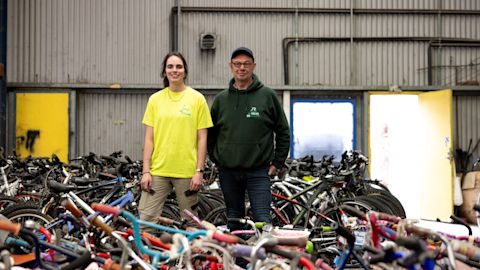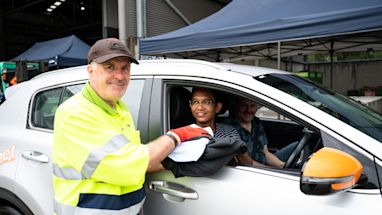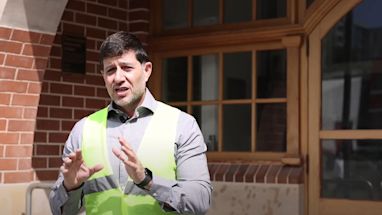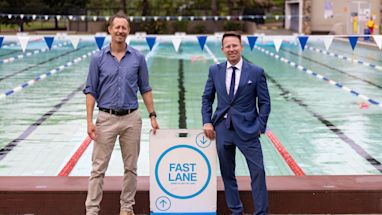Dumped bikes are a big problem
Sydneysiders throw out more bikes than you’d expect.
“In Sydney alone, over 30,000 households each year have an unwanted bike to dispose of,” Revolve ReCYCLING general manager Guido Verbist said.
“Our mission from day one has been to keep these bikes out of landfill.”

Based in Alexandria, the not-for-profit organisation collects up to 500 unwanted bikes from across Sydney each month and recycles, refurbishes or rehomes them. Most of Revolve ReCYCLING’s bikes are collected door-to-door across 13 local council areas, which is time consuming and labour intensive.

Revolve ReCYCLING received a City of Sydney grant in our winter 2022/23 grants round and is putting that funding to work by expanding the ways bikes are collected. This includes building partnerships with a chain of bike stores so people can drop off unwanted bikes at more locations.
Learn more about our grants and see what is on offer in our 2023/24 winter grants round.
Around 70% of the collected bikes are recycled. “The steel, aluminium and rubber in a bike are all valuable materials for recycling. But selling the materials alone for recycling is not financially sustainable – you need to create income streams to make the operation viable,” Verbist said.
That income comes from refurbishing and then selling the bikes that are in good condition – around 20% of the total number collected – or stripping bikes for spare parts which are then sold from the Revolve workshop and showroom in Alexandria.

Bikes for people in need
Donating bikes to those who cannot afford one is another way Revolve is benefiting the community.
“On one hand there are parents who have kids’ bikes they don’t know how to get rid of, and on the other hand we have families who cannot afford a bike for their kids,” Verbist said.
“We work closely with the Benevolent Society. If they have a family who cannot afford a bike, we will supply one.”
Verbist believes in the power of bikes for good, especially for young people.
“We would like all children to have access to a bike for obvious reasons, physical health, mental health, fighting isolation, helping kids feel integrated with the community.”

Tackling the problem throughout the product lifecycle
“Around 50% of bikes sold in Australia come from ‘big box’ stores, and these are the kind of bikes that do not last,” Verbist said.
The poor quality of many bikes sold in Australia is one reason why so many bikes end up in landfill.
“The estimated lifespan of these kind of bikes is just 90 hours, that is terrible.”
Revolve is working with other bikes industry advocates to push for better minimum quality standards to ensure bikes have a longer life.

Revolve also has a scheme to assist bike shops to recycle their own landfill.
“Most bike shops produce around half a tonne of recyclable waste each year, and most goes into landfill,” Verbist said. With over 200 bike shops in NSW alone, this is a large issue. “It’s relatively low-hanging fruit,” says Verbeist.
Revolve supply bike shops with bins to help them easily sort their recyclable metal and rubber and then collect them fortnightly or monthly, recycling the materials. Revolve now has its sights set on expanding interstate.
Learn more about Revolve ReCYCLING or get in touch if you have a bike you’d like to recycle. You can also drop off your bike to Revolve at our next Recycle It Saturday event on 26 August.
Our winter grants round is now open until 22 August. Subscribe to our grants newsletter to stay up to date.
Published 25 July 2023, updated 17 January 2024



